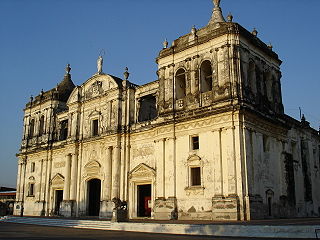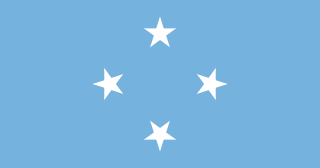A Christian denomination is a distinct religious body within Christianity that comprises all church congregations of the same kind, identifiable by traits such as a name, particular history, organization, leadership, theological doctrine, worship style and, sometimes, a founder. It is a secular and neutral term, generally used to denote any established Christian church. Unlike a cult or sect, a denomination is usually seen as part of the Christian religious mainstream. Most Christian denominations refer to themselves as churches, whereas some newer ones tend to interchangeably use the terms churches, assemblies, fellowships, etc. Divisions between one group and another are defined by authority and doctrine; issues such as the nature of Jesus, the authority of apostolic succession, biblical hermeneutics, theology, ecclesiology, eschatology, and papal primacy may separate one denomination from another. Groups of denominations—often sharing broadly similar beliefs, practices, and historical ties—are sometimes known as "branches of Christianity". These branches differ in many ways, especially through differences in practices and belief.

Christianity is the most widely professed religion in Argentina, with Roman Catholicism being its largest denomination. This historical background is very much due to the Spanish influence brought about through the newly conquered territories. However, affiliation with Protestant churches is increasing and immigration throughout the 20th century has brought other religions from various regions to Argentina.

Christianity has a long history in the region that is now Sudan and South Sudan. Ancient Nubia was reached by Coptic Christianity by the 2nd century. The Coptic Church was later influenced by Greek Christianity, particularly during the Byzantine era. From the 7th century, the Christian Nubian kingdoms were threatened by the Islamic expansion, but the southernmost of these kingdoms, Alodia, survived until 1504.

Religion in Nicaragua is predominantly Christian and forms a significant part of the culture of the country as well as its constitution. Religious freedom and religious tolerance is promoted by both the Nicaraguan government and the constitution.

Christianity is the most prevalent religion in the United States. Estimates from 2021 suggest that of the entire U.S. population about 63% is Christian. The majority of Christian Americans are Protestant Christians, though there are also significant numbers of American Roman Catholics and other Christian denominations such as Latter-day Saints, Orthodox Christians and Oriental Orthodox Christians, and Jehovah's Witnesses. The United States has the largest Christian population in the world and, more specifically, the largest Protestant population in the world, with nearly 210 million Christians and, as of 2021, over 140 million people affiliated with Protestant churches, although other countries have higher percentages of Christians among their populations. The Public Religion Research Institute's "2020 Census of American Religion", carried out between 2014 and 2020, showed that 70% of Americans identified as Christian during this seven-year interval. In a 2020 survey by the Pew Research Center, 65% of adults in the United States identified themselves as Christians. They were 75% in 2015, 70.6% in 2014, 78% in 2012, 81.6% in 2001, and 85% in 1990. About 62% of those polled claim to be members of a church congregation.

The dominant religion in Slovenia is Christianity, primarily the Catholic Church, which is the largest Christian denomination in the country. Other Christian groups having significant followings in the country include Eastern Orthodoxy and Protestantism (Lutheranism). Islam, Judaism and Hinduism are small minorities in Slovenia. About 18% of the population are either agnostic or atheist.
The constitution of Cape Verde provides for freedom of religion, and the government has generally respected this right in practice. Government policy continued to contribute to the generally free practice of religion. There were no reports of societal abuses or discrimination based on religious belief or practice.
Religion is an important aspect of identity and society in Guyana. In 2012 the population was 63% Christian, 25% Hindu, 7% Muslim. Religions are reflected by East Indian, African, Chinese, and European ancestry, as well as a significant indigenous population. Members of all ethnic groups are well represented in all religious groups, with two exceptions: most Hindus are Indo-Guyanese, and nearly all Rastafarians are Afro-Guyanese people. Foreign missionaries from many religious groups are present. Christianity has historically been associated with Afro-Guyanese.

Christianity is the largest religion in Mozambique, with substantial minorities of the adherents of traditional faiths and Islam.

Christianity is the largest religion in Cape Verde, with Roman Catholics having the most adherents. Different sources give varying estimates on the relative sizes of various Christian denominations. More than 94% of the population of Cape Verde is Christian, with almost 85% being Roman Catholic. About 5% of the population is Protestant. The largest Protestant denomination is the Church of the Nazarene. Other groups include the Church of the Nazarene, the Assemblies of God, Seventh-day Adventist Church, the Universal Church of the Kingdom of God, independent Baptists and various other Pentecostal and evangelical groups.

Christianity is the predominant religion in Solomon Islands, with Anglicanism being the single largest denomination.

The population of the Federated States of Micronesia is predominantly Christian, although the representation of various denominations varies greatly from state to state. The government generally upholds the freedom of religion, but the small Muslim community in the country faces significant discrimination from both general society and the government.

Christianity is the largest religion in Nauru, with Nauru Congregational Church being the largest denomination, encompassing 35.71% of the population as of the 2011 census.

Christianity is the official and largest religion in Samoa, with its various denominations accounting for around 98% of the total population. The article 1 of the Constitution of Samoa states that "Samoa is a Christian nation founded of God the Father, the Son and the Holy Spirit".

Christianity is the largest religion in Venezuela, with Catholicism having the most adherents.

The most common religion in Dominica is Christianity, with a majority of practitioners identifying as Roman Catholic. Various minority religious groups are also present on the island.

Christians in the Gambia constitute approximately 3 percent (~136,400) of the country's population
Protestants are the 4th largest religious group in Serbia, after Eastern Orthodox Christians, Roman Catholics and Muslims. In the 2011 census, there were 71,284 Protestants in Serbia and they comprised 1% of the population of the country. Ethnic Slovaks constitute majority of Serbia's Protestant community. Some members of other ethnic groups are also adherents of various forms of Protestant Christianity.

Cape Verdeans, also called Cabo Verdeans, are a creole ethnic group native to Cape Verde, an island nation in West Africa consisting of an archipelago in the central Atlantic Ocean. Cape Verde is a multi-ethnic society, which means that it is home to people of many different ethnic backgrounds. Cabo Verdeans do not consider their nationality as an ethnicity but as a citizenship with various ethnicities.

















